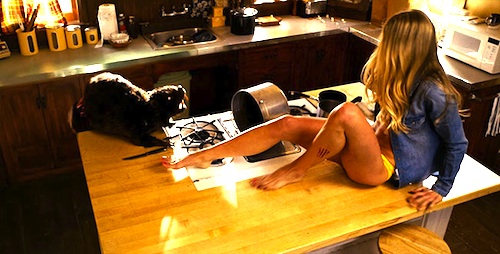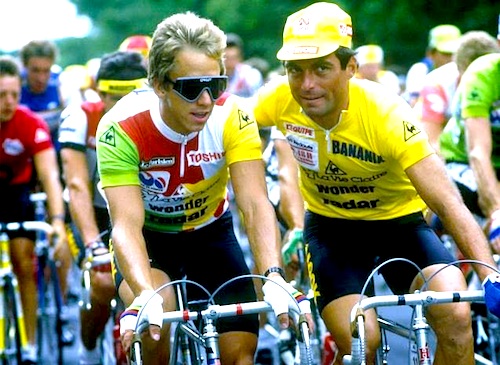By Joe Bendel. Fashion designer Nora Noh is widely credited with popularizing the mini-skirt in South Korea. Obviously, she deserves the thanks of a grateful nation, if not the entire world. Yet many younger Korean fashionistas were unaware of her trailblazing work until the opening of a special retrospective commemorating her sixty years in the business. Kim Sung-hee surveys Noh’s life and couture while chronicling the mounting of the designer’s special exhibition in Nora Noh, which screens for free this coming Tuesday in New York, courtesy of the Korean Cultural Service.
Noh could be considered the Korean Coco Chanel and Edith Head combined. She was a pioneer designing sleek, elegant “western style” business and casual wear for professional Korean women. A shrewd businesswoman, Noh launched a successful ready-to-wear line before her European colleagues. Yet, she also became the personally designer for many of Korea’s top stars, including pop idol Yoon Bok-hee, who made Korean cultural history sporting Noh’s minis.
Even viewers with little fashion sense will pick out interesting nuggets from Kim’s profile. Noh very definitely lived a feminist Horatio Alger life. Her challenges continued when she refused to kowtow to the arrogant press (likely explaining her under-representation in Korean cultural history). She had her run-ins with the secret police, yet ironically, the film indirectly suggests the liberated simplicity of Noh’s designs was rather compatible with the militarist government’s drive to industrialize (a potentially provocative point that could have been explored at greater length).

Perhaps the film’s greatest assets are the extensive clips from vintage Korean movies illustrating Noh’s image-making power, which will intrigue cineastes as much or perhaps more than clothes horses. While not exactly chatty, she remains a strong figure of individual stick-to-itiveness and a mostly likable screen presence.
Nora Noh is not the most dramatic film ever lensed, even though Noh’s early life was quite tumultuous. Frankly, the sentimental soundtrack does not sound very Nora Noh. Nevertheless, Kim and editor Lee Hyuk-sang keep it moving along nicely. Recommended for students of fashion as well as those fascinated by the phenomenon of global cultural modernization, Nora Noh screens (free of charge) this Tuesday (4/29) at the Tribeca Cinemas as part of the Korean Cultural Service’s regular Korean Movie Night series.
LFM GRADE: B
Posted on April 27th, 2014 at 9:52pm.







